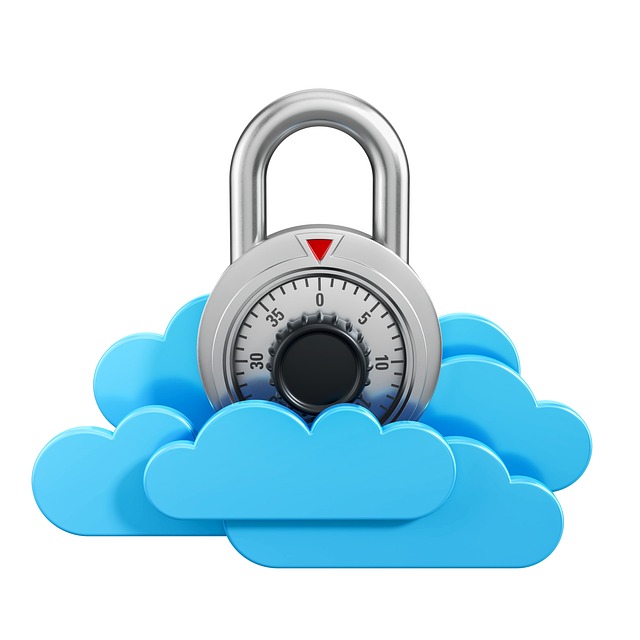The transition to cloud computing for accounting practices is driven by industry digital transformation, offering enhanced operational efficiency, data security, and accessibility through secure cloud storage solutions. Features like real-time data synchronization and virtual office capabilities facilitate collaboration and client communication, increasing productivity and risk management. Cloud storage ensures secure handling of sensitive financial data, with advanced encryption and access controls. Integrating software applications with cloud infrastructure further improves efficiency and security, centralizing data while enabling remote access and seamless collaboration. Choosing reputable providers with SOC 2 or ISO 27001 certifications and implementing multi-factor authentication enhances data protection. Ultimately, cloud solutions revolutionize accounting practices, streamlining workflows, enhancing productivity, and fostering collaboration, positioning firms for long-term success.
In today’s digital age, cloud infrastructure and software integration are transforming accounting practices. The shift to cloud computing offers numerous advantages, particularly in terms of secure data management for CPAs. This article explores the benefits of cloud storage, strategies for integrating software applications, and best practices for safeguarding sensitive data. By leveraging cloud solutions, accounting firms can streamline workflows, future-proof their operations, and enhance overall efficiency.
- Understanding the Shift to Cloud Computing for Accounting Practices
- Benefits of Cloud Storage for Secure Data Management
- Integrating Software Applications with Cloud Infrastructure
- Best Practices for Ensuring CPA Data Security in the Cloud
- Streamlining Workflows: Cloud Solutions for Efficient Accounting Firms
- Future-Proofing Your Firm: Long-Term Advantages of Cloud Integration
Understanding the Shift to Cloud Computing for Accounting Practices

The shift to cloud computing for accounting practices is a significant and necessary change, primarily driven by the evolving digital landscape. Traditional on-premise systems are being replaced with robust, secure cloud storage solutions that offer numerous advantages to CPAs. This transition isn’t just about technology; it’s a strategic move towards enhancing operational efficiency, data security, and accessibility for accounting firms.
By adopting cloud infrastructure, accounting firms can transform their entire operations into a seamless digital workspace. Features like real-time data sync accounting ensure that information is up-to-date and accessible from anywhere at any time. Moreover, this shift enables CPAs to leverage virtual office capabilities, fostering collaboration and improving client communication. The benefits are clear: enhanced productivity, better risk management, and the ability to provide cutting-edge services in a secure cloud storage environment.
Benefits of Cloud Storage for Secure Data Management

Cloud storage offers a robust solution for secure data management, an aspect that’s particularly beneficial for CPAs looking to safeguard sensitive financial information. By migrating their data to the cloud, accounting firms can take advantage of advanced security measures such as encryption and access controls, ensuring only authorised personnel can view or modify critical files. This reduces the risk of data breaches significantly, which is crucial in maintaining client trust.
Moreover, cloud storage enables seamless collaboration within an accounting firm’s digital workspace. Multiple CPAs and staff members can work on the same documents simultaneously, enhancing productivity and efficiency. A hybrid cloud approach, where some data resides locally while others are stored off-site, provides a balance between security and accessibility, catering to both immediate needs and future growth aspirations of the accounting firm.
Integrating Software Applications with Cloud Infrastructure

Integrating Software Applications with Cloud Infrastructure offers accounting firms a powerful combination that enhances efficiency and security. By leveraging secure cloud storage solutions, CPAs can centralize their data while maintaining compliance standards. This digital transformation allows for seamless access to financial records from anywhere, enabling virtual office CPAs to collaborate effectively. The hybrid cloud CPA model provides both the scalability and flexibility needed to manage fluctuating workloads, ensuring a robust accounting firm digital workspace.
This integration goes beyond simple data storage; it involves connecting various software applications used in daily operations. From invoicing and expense management to tax preparation and audit tools, these applications can now communicate seamlessly within the cloud infrastructure. This unified platform streamlines processes, reduces manual errors, and provides real-time insights, ultimately optimizing the productivity of accounting professionals.
Best Practices for Ensuring CPA Data Security in the Cloud

To ensure the security of their sensitive financial data, CPAs must adopt robust best practices when adopting cloud storage solutions for their accounting firms. Firstly, select a reputable cloud provider with stringent security protocols and compliance certifications, such as SOC 2 or ISO 27001. This guarantees that the firm’s data is stored in a secure environment with advanced encryption methods. Additionally, implementing strong access controls, including multi-factor authentication, ensures that only authorized personnel can access critical financial information. Regular security audits and vulnerability assessments should be conducted to identify and patch potential weaknesses.
Moreover, enabling data sync accounting features allows for real-time backups and redundancy, enhancing recovery capabilities in the event of a breach or system failure. Encryption at rest and in transit further safeguards financial data within the cloud workspace. By combining these measures, accounting firms can ensure their digital assets remain secure while leveraging the scalability and efficiency benefits of cloud infrastructure.
Streamlining Workflows: Cloud Solutions for Efficient Accounting Firms

Cloud solutions are transforming the way accounting firms operate by streamlining workflows and enhancing productivity. By leveraging secure cloud storage, CPAs can access financial data and client information from anywhere at any time, eliminating the constraints of a physical office. This enables efficient collaboration among team members, allowing for real-time document sharing and editing, regardless of their geographical locations.
The migration to cloud-based accounting software, such as SaaS for CPAs, offers numerous advantages. It creates a centralized digital workspace where all financial records are organized and easily searchable. This not only improves data management but also facilitates faster decision-making processes. With cloud migration accounting, firms can automate repetitive tasks, reduce manual errors, and focus on delivering high-quality services to their clients.
Future-Proofing Your Firm: Long-Term Advantages of Cloud Integration

As an accounting firm, staying ahead of the curve is essential to future-proofing your business and ensuring long-term success. Cloud infrastructure and software integration offers a strategic advantage that can propel your firm into the digital age. By adopting cloud solutions, you gain secure cloud storage for financial data, client information, and documents, eliminating the risks associated with traditional on-premise systems. This shift enables CPAs to access real-time data from anywhere, fostering collaboration and productivity among team members.
The benefits extend beyond security and accessibility; cloud integration seamlessly facilitates data sync accounting processes, allowing for efficient and accurate financial management. Moreover, a hybrid cloud CPA approach can be tailored to meet your firm’s unique needs, providing scalability, cost savings, and the flexibility to adapt to changing market dynamics. This modern infrastructure positions your accounting firm as a forward-thinking organization, ready to embrace digital transformation while maintaining the highest standards of data security and privacy.
